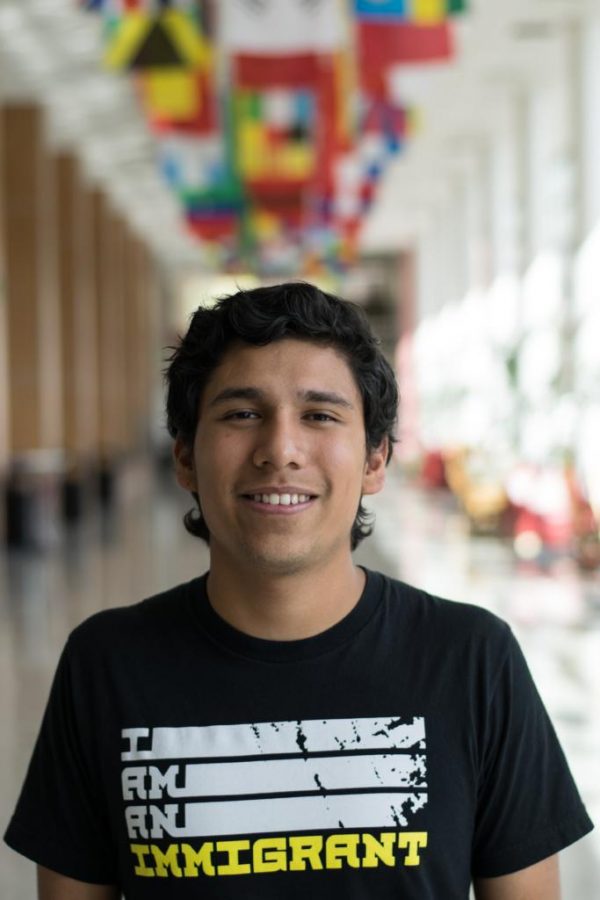As a child, Francisco Juarez didnít know he was undocumented. All of his life, save the first six months, was spent in the United States. His outlook on life changed, however, when his college-educated mom emerged from a job interview crying. She went in confident that she would get the job, but the employer said they couldn’t hire her due to her citizenship status.
Now, Juarez’s opportunities are threatened by his lack of documentation as well.
Background
Juarez is a recipient of the Deferred Action for Childhood Arrivals (DACA) program — beneficiaries of which are often called Dreamers. DACA allows undocumented immigrants brought to the U.S. as children to obtain two-year work and study permits, thereby delaying deportation.
Former President Barack Obama introduced the policy in June 2012 after recognizing there were a significant number of undocumented children attending school and working in the country that had little recollection of life outside the U.S.
“I have never been [to Mexico],” Juarez said. “I speak Spanish because my parents speak Spanish, but I don’t know very much about Mexico itself. This is the only country I really know. I’ve lived here my entire life.”
On Sept. 5, Attorney General Jeff Sessions announced the Trump Administration’s intentions to end the program. That same day, the Department of Homeland Security stopped accepting applications for the program. Those whose permits expire within six months of the announcement may renew them through Oct. 5.
Approximately 800,000 individuals have received protection under DACA, an estimated 250 of which attend the University of Utah.
Student life
Juarez is a senior studying information systems through the Honors College at the U. He has been troubled by the decision since it was announced.
“The nice thing about school is that it takes your mind away from these other issues because you have to focus on completing this assignment, doing these readings,” Juarez said. “I do catch myself every now and then taking a step back and realizing that if all else failed, I could be deported out of the only country I know, which is my home.”
At the U, Juarez volunteers in the community as one of the business school’s Opportunity Scholars, and he is an ambassador for the Dream Center. The Dream Center works with undocumented students, like Juarez, to ensure college access and provide support through graduation.
Typically, Juarez works as a research strategist gathering data for the Dream Center. Recently, however, his hands have been full helping other Dreamers who are worried about their future.
“There are a lot of students who are scared,” Juarez said. “They want to know what this means for them and their family. We’re there to provide support. We’re there to provide resources.”
As a fellow DACA recipient, he is in a unique position because he can relate to these students.
“It’s stressful, to say the least,” he said.
Juarez’s permit doesn’t expire until August or November of 2018 — he can’t remember which — so he isn’t eligible for renewal. After he graduates, if legislation isn’t passed to create a pathway to citizenship for Dreamers, he may be deported.
“If for some reason this doesn’t pan out the way we want it to, down the road, I guess I would have a degree in information systems,” Juarez said. “I haven’t thought that far into the future. I’m focusing on what to do in the next six months, but knowing I’ll have a degree from a higher education institution in the states does provide some comfort.”
Last summer, Juarez interned in Washington, D.C. as part of the Congressional Hispanic Caucus Institute. There, he learned about and gave insight on immigration reform. One piece of legislation that is currently being debated is the Dream Act of 2017, which would give DACA recipients the opportunity to become citizens.
“It’s important to note that although DACA was rescinded, we need to focus on mobilizing and working towards some sort of change,” Juarez said. “Now we need to focus on pressuring Congress to take action.”
If Juarez is allowed to stay in the country, he aims to work with non-profits to push for comprehensive immigration reform. He said short-term, he would like to work for an immigrant advocacy group located in Washington D.C., like FWD.us, Voto Latino or the Mexican American Legal Defense and Education Fund for one to two years. Then, he hopes to obtain a master’s degree in public policy to continue his work.
“The best thing that could happen, in my opinion, is comprehensive immigration reform that would take the estimated 11.5 million undocumented individuals in the States out of the shadows, and provide us with some sort of legal status, then a pathway to citizenship,” Juarez said.
Focusing on the present
Right now, Juarez is just focusing on finishing his honors thesis. He said he plans on pursuing one of two options — designing a database to consolidate resources for the Dream Center or text mining language used by Utah institutions regarding people who are undocumented. He wants to see how that affects enrollment rates at higher education institutions, as well as how many undocumented individuals are taking advantage of state funding for tuition.
If Congress doesn’t find a solution for Dreamers, Juarez thinks the decision won’t only negatively affect his life, but the country as a whole.
“As DACA recipients, we are contributing members of society,” he said. “We are taxpaying individuals and we go through extensive background checks. Many of us have been here our entire lives. This is the country we know, the country we love and the country we want to continue to give back to.”
e.anderson@dailyutahchronicle.com
@emilyreanderson



James • Sep 28, 2017 at 2:01 pm
Send him back across the Rio Grande to Mexico. Viva la Raza!